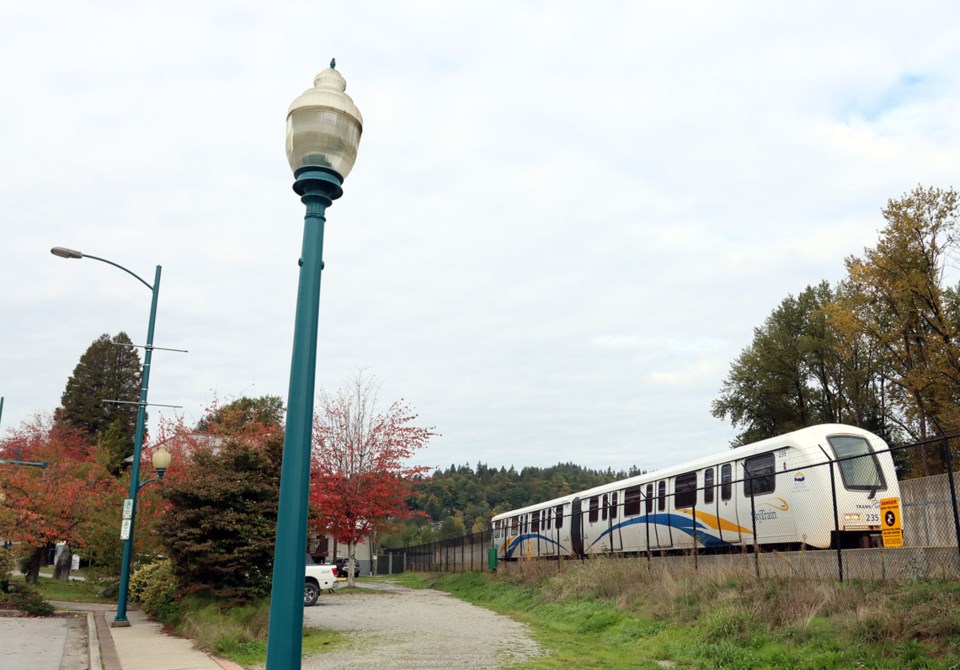A third SkyTrain station in Port Moody is possible, says a consultant’s report to be presented to council on Tuesday.
But it wouldn’t be cheap, and the city would likely have to find a way to get developers to pay much of the cost.
According to the consulting company Urban Systems, a new SkyTrain station located at Queens Street or a little further west, would cost between $50 million and $100 million depending on its location and complexity.
Allison Clavelle, a transportation engineer and principal at Urban Systems, said in her report that while the guideway for the Millennium Line that runs through the city was originally designed to accommodate a future station at Queens Street, its proximity to the nearby existing station at Moody Centre likely means it wouldn’t generate much additional ridership.
But placing a new station further west, where it could draw riders from potentially densifying neighbourhoods at Woodland Park and the old Andrés Wines property, would require costly realignment of the existing tracks or even the construction of new tracks because of the area’s steep four to five per cent grade.
“Further technical exploration is needed to determine if track reconstruction, construction of parallel track, or other approaches could be utilized to deliver a feasible station,” Clavelle writes in her report, adding complicated construction would boost the cost of a new station considerably.
TransLink could also request that additional costs for new cars to maintain service levels, as well as more operations and maintenance requirements.
That’s because, Clavelle stated, TransLink and senior levels of government “have not historically committed funding” for new stations constructed on an existing line.
Instead, she said, any new station would likely have to paid for by the city and private investment.
The Lincoln station in Coquitlam, which wasn’t part of the original plan for the Evergreen Line, was funded by a partnership between that city, Coquitlam Centre mall and PPP Canada, a crown corporation that facilitates public-private partnerships.
Another new station on the Canada Line in Richmond is being paid for by three developers through a $7,800 charge per condo unit at projects they’re building nearby.
A similar funding arrangement for a new station in Port Moody would result in a levy of at least $18,000 per unit for the 5,500 units that are anticipated to be built in the surrounding area over the next decade or so, said Clavelle, who based her projections on a station at the upper end of the anticipated budget.
In his report to council, Port Moody’s transportation engineer, Geoffrey Keyworth, said the city would have to assess the implications of such a funding plan on area developments.
The possibility of a third SkyTrain station in Port Moody was discussed briefly two years ago as part of council’s consideration of amendments to the city’s official community plan to accommodate future redevelopment of the old Andrés Wines site.
But it gained further traction last June when Mayor Rob Vagramov successfully pitched a resolution for staff to report back to council with potential funding options for a new station, as well as its feasibility as a component of a redevelopment plan for the 23.4-hectare Woodland Park neighbourhood— just west of the Barnet Highway.
He said the prospect of the proposal’s 2,053 new homes adding more cars to the local road network “is a showstopper for me.”


